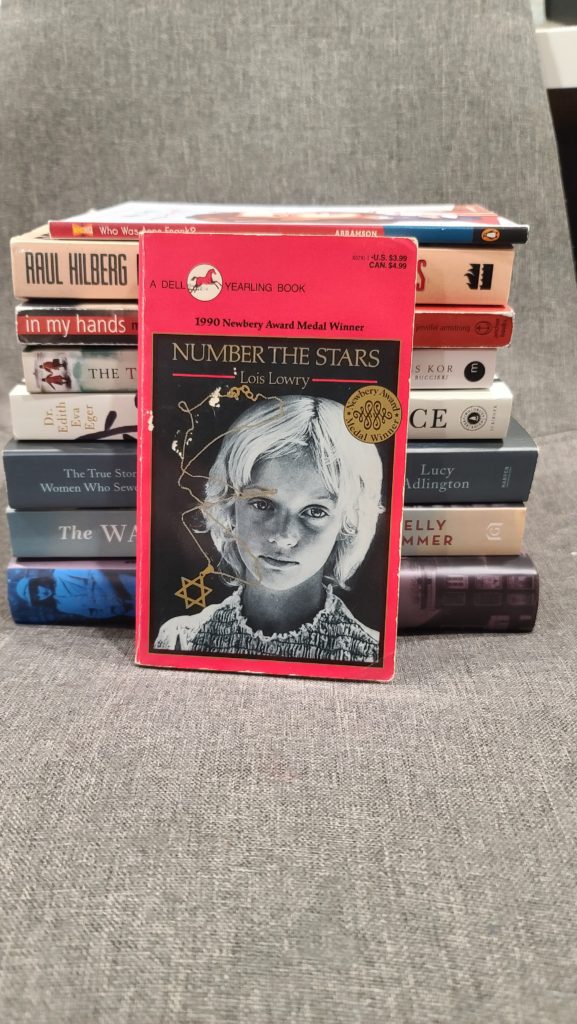“Thou shalt not be a victim, thou shalt not be a perpetrator, but, above all, thou shalt not be a bystander.” ― Yehuda Bauer
Today is International Holocaust Remembrance Day. For many of my Jewish friends, today is a day of mourning but also a day of activism. For many of them, their family legacies include a responsibility to ensure that the Holocaust doesn’t happen again. But they shouldn’t bear that responsibility alone.
My first exposure to the Holocaust was in grade one. I had an amazing teacher who choose to read Lois Lowry’s Number the Stars with us. From that moment, I discovered a part of me that needed to know why it all happened, how it all happened, and how do we stop it from happening again. As I’ve grown older, my commitment to learning more has stayed with me. Now more than ever that commitment is not enough. To be honest, it never was.
Did you know that a survey conducted in 2018 found 52% of Canadian millennials and gen z surveyed could not name one concentration camp or ghetto, while 22% did not hear or were not sure they had heard of the Holocaust and 62% didn’t know six million Jews died in the Holocaust? If that doesn’t scare you, it should. With many people trying to draw parallels between the Holocaust and other events without even a basic understanding of the nuances and the history, it shouldn’t just be disgusting, it should frighten you.
Comparing the Holocaust to vaccine mandates or whatever else people are trying to compare it to, is not only disrespectful but it truly captures how very few people understand one of the most tragic and horrific moments of history. Antisemitism was at the foundation of the Holocaust. Antisemitism, the hatred of or prejudice against Jews, was a basic tenet of Nazi ideology. This prejudice was also widespread throughout many countries around the world. It is also something that never went away.
The Holocaust didn’t have to happen, it wasn’t inevitable. The inactions and actions of people, groups, and countries led to the tragic and unnecessary loss of lives. We didn’t just lose a generation of people, we lost future generations.
If you truly want to learn more, I have included several books that I found were incredibly impactful but don’t limit yourself to this list.
Survivors and their families have been sharing their stories for decades. Listen to them. Believe them. Learn from them.
Books:
This is not an exhaustive list, but just some of the books that have stuck out in my mind and maybe a good starting point for you.
- Number the Stars by Lois Lowry
- Perpetrators, Victims, Bystanders: The Jewish Catastrophe 1933-1945 by Raul Hilberg
- The Choice by Dr. Edith Eva Eger
- Anne Frank: The Diary of a Young Girl by Anne Frank
- In the Midst of Civilized Europe by Jeffrey Veidlinger
- A Garden of Eden in Hell: The Life of Alice Herz-Sommer by Melissa Muller
- The Twins of Auschwitz by Eva Mozes Kor with Lisa Rojany Buccieri
- Who was Anne Frank by Ann Abramson
- In my hands: memories of a holocaust rescuser by Irene Gut Opdyke with Jennifer Armstrong
- The Betrayal of Anne Frank by Rosemary Sullivan
- The Warsaw Orphan by Kelly Rimmer
- The Dressmakers of Auschwitz by Lucy Adlington
- Lily’s Promise by Lily Ebert and Dov Forman
- How to be a refugee by Simon May




Leave a Reply